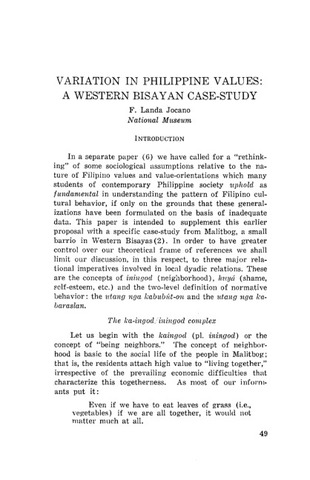Variation in Philippine values: A Western Bisayan case-study
Abstract
In a separate paper we have called for a “rethinking” of some sociological assumptions relative to the nature of Filipino values and value-orientations which many students of contemporary Philippine society uphold as fundamental in understanding the pattern of Filipino cultural behavior, if only on the grounds that these generalizations have been formulated on the basis of inadequate data. This paper is intended to supplement this earlier proposal with a specific case-study from Malitbog, a small barrio in Western Bisayas. In order to have greater control over our theoretical frame of references we shall limit our discussion, in this respect, to three major relational imperatives involved in local dyadic relations. These are the concepts of iningod (neighborhood), huya (shame, self-esteem, etc.) and the two-level definition of normative behavior: the utang nga kabubut-on and the utang nga kabaraslan.
Description
Journal Article


